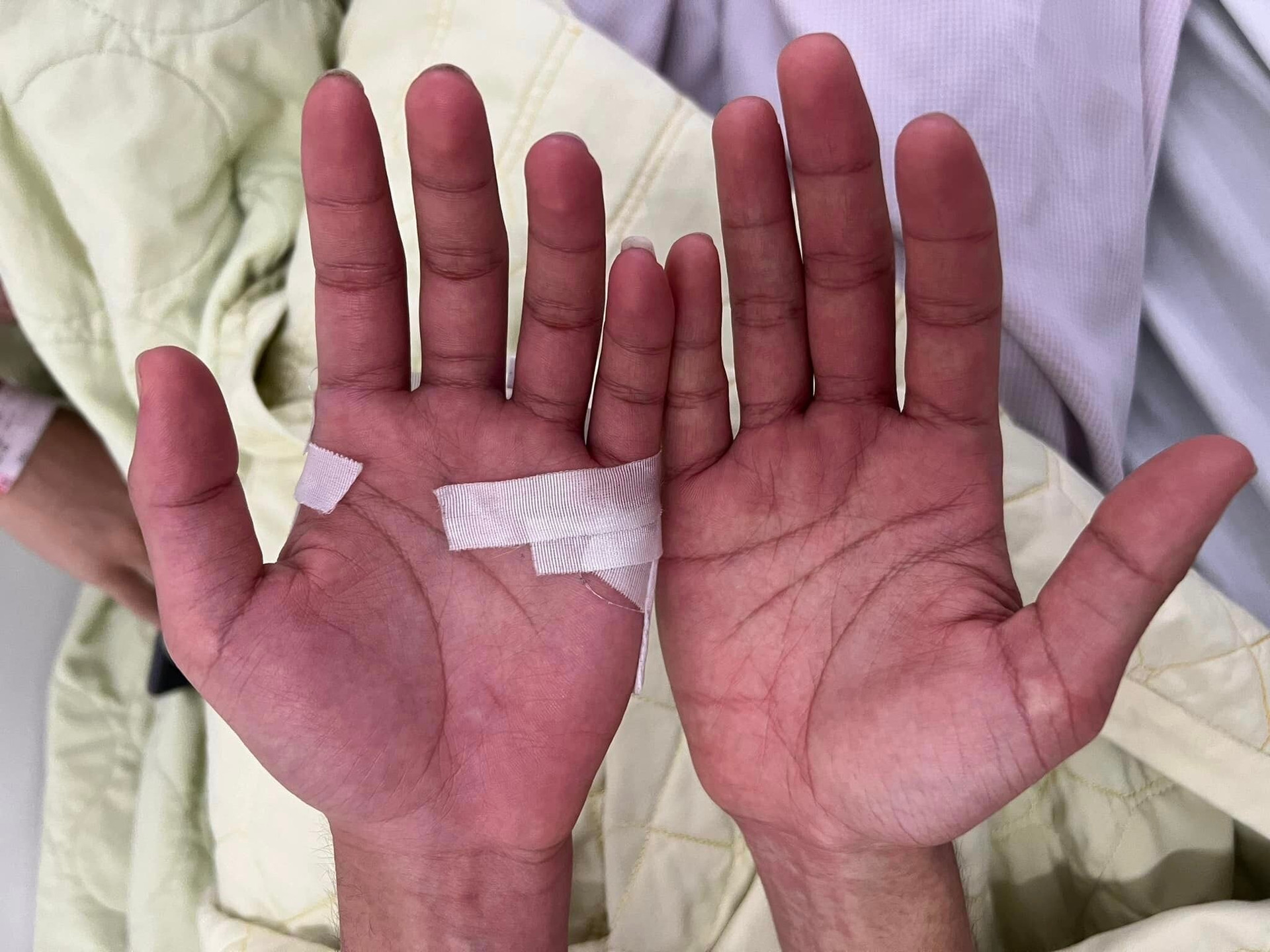Is dengue fever with itching and red rash normal or abnormal?
According to Associate Professor, Dr. Do Duy Cuong, Director of the Tropical Disease Center, Bach Mai Hospital, many patients with dengue fever from the 5th or 6th day onwards experience itching in the palms of their hands, soles of their feet, and even all over their body.
Their hands and feet turned red. They even lost their appetite and sleep, to the point of being unbearable. “This is a normal and quite common symptom of dengue fever. When this sign appears, it means you are in the recovery stage and are about to recover,” Associate Professor Cuong said.
The above mechanism is due to the process of reabsorption of extracellular water into the blood vessels, skin tissue that has been restored after damage caused by the virus and the overreaction of the antigen-antibody complex that causes itching.
Patients only need to take antihistamines such as Aerius 5mg 1 tablet per day, after 2-3 days the disease will be cured.

Patients with dengue fever from the 5th-6th day onwards have itching in both palms and soles of the feet.
Dengue fever is an acute infectious disease caused by the Dengue virus in Aedes mosquitoes transmitted from person to person through mosquito bites. There are 4 serotypes: D1, 2, 3 and 4. The incubation period is from 4 to 5 days.
The clinical course goes through 3 stages. From day 1 to day 3 is the fever stage, from day 4 to day 7 is the dangerous stage, from day 7 to day 10 is the recovery stage.
Two pathogenesis mechanisms can lead to danger. First, when the virus attacks the body, it will inhibit the bone marrow, causing thrombocytopenia, which will lead to bleeding.
Second, the virus damages the capillary walls, causing increased permeability, causing plasma to leak out of the blood vessels, resulting in blood concentration. As a result, the patient may go into shock due to decreased circulating volume.
Thrombocytopenia will increase over time, but treatment of hypovolemic shock due to blood concentration is very difficult, and is the main cause of death.
Regarding treatment, mild cases or dengue fever in the early days can be treated and monitored at home. Patients need to drink enough water, take antipyretics - pain relievers such as paracetamol, rest, and have daily blood tests.
Patients should not self-administer intravenous fluids and should not use antibiotics or corticosteroids.
Patients need to pay special attention, from the 4th - 5th day onwards, there will be a phenomenon of blood concentration if not enough fluid is replenished.
Blood test shows that the Hematocrite index increases by more than 20% compared to the original, which means the blood is concentrated. Patients need to pay attention to the issue of fluid transfusion.
In case of ineffective infusion, high molecular solution must be used to draw water into the blood vessels.
Associate Professor Cuong pointed out the reality that many people subjectively think that dengue fever is normal, that fever will go away after a few days, so they stay at home, and only go to the hospital when they see bleeding. In reality, there are many cases of fever but no signs of bleeding, blood concentration leading to shock. At this point, treatment is very difficult, and death can even occur.
People with fever symptoms should go to medical facilities for blood tests, definitive diagnosis and treatment by a specialist. Do not self-treat at home.
According to VTC News